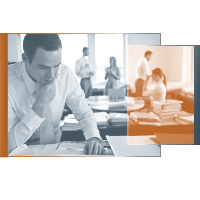 Advanced Securities for LSS & Junior Lawyer
Advanced Securities for LSS & Junior Lawyer
Course Date: February 25, 2005
Course Date: February 25, 2005
Welcome
Dr. Alan McHughen — University of California, Riverside, CA
Introduction and Overview
-
historic development of science in the courts
-
modern experience, educational deficits
-
what every lawyer needs to know: scientific proof, genetics, and neurobiology
-
overview of “coming attractions”
Justice Thomas E. Hollenhorst — Associate Justice, California Court of Appeal, Riverside, CA
Science and Scientists
-
science in everyday life
-
scientific illiteracy and the consequences of scientific illiteracy
-
foundations of science: the scientific method(s)
-
contrasting legal and scientific cultures
-
distinguishing science from pseudoscience
-
features of science and scientists
-
hypotheses
-
testing and constructing models
-
evidence
-
progress of knowledge
Dr. Alan McHughen — University of California, Riverside, CA
Breakout Groups—Scenario #1: "The Chosen One" or "Saviour Baby"
Networking Break
Bamboozled by Statistics?
- why stats? It’s rarely black or white
- probability and normal distributions
- misapplication of statistical data
- prosecutor’s fallacy
- Meadow’s Law
- Sally Clark
- People v. Collins
- rare events: relative vs. absolute
- Bayes’ Theorem
- likelihood ratio
- DNA profiling
- use and abuse of statistics
- caveats
Dr. Colin Rasmussen, LLB — Barrister & Solicitor, Patent Agent, Rasmussen Rasmussen & Charowsky - LPC, Colton, CA
Lunch (on your own)
Genetics and Genomics
- basics of DNA and genetics
- DNA as a recipe book
- the human genome
- a closer look at chromosome 11
- of mice and men: insulin
- an obesity gene on Chr 16?
- synteny and polymorphisms
- forensic DNA: SNiP, STRs AND Y-STRs
- mtDNA
- an angiosperm witness for the prosecution
Dr. Alan McHughen — University of California, Riverside, CA
Breakout Groups—Scenario #2: "DNA Analysis" or "Hand Over Your DNA"
Networking Break
Neurobiology and Memory
- what is neuroscience?
- why do legal professionals need to know about neuroscience?
- how do we study neuroscience?—from large iron rods to microscopic electrodes
- what rodents tell us about memory
- what H.M. told us about memory
- memory comes in different flavors
- factors that affect memory: drugs, alcohol, and satanic rituals
- the aging brain—a growing societal concern
- can we “see” memory in the brain?—an introduction to neuroimaging
Dr. Judy Illes — Professor of Neurology, Faculty of Medicine AND Faculty, Brain Research Centre, National Core for Neuroethics, University of BC, Vancouver
Dr. Julie Robillard — Postdoctoral Fellow, Faculty of Medicine, National Core for Neuroethics, University of BC, Vancouver
Discussion and Wrap-Up
Dr. Alan McHughen — University of California, Riverside, CA
Dr. Judy Illes — Professor of Neurology, Faculty of Medicine AND Faculty, Brain Research Centre, National Core for Neuroethics, University of BC, Vancouver
Dr. Colin Rasmussen, LLB — Barrister & Solicitor, Patent Agent, Rasmussen Rasmussen & Charowsky - LPC, Colton, CA
Dr. Julie Robillard — Postdoctoral Fellow, Faculty of Medicine, National Core for Neuroethics, University of BC, Vancouver
Concluding Remarks
Dr. Alan McHughen — University of California, Riverside, CA

